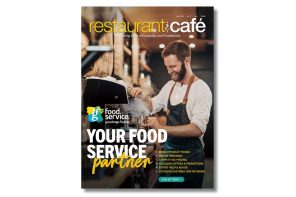Café patrons in Perth will be encouraged to compost their disposable coffee cups as part of Australia’s first comprehensive national composting service for food service packaging.
In a move designed to divert food scraps and food service packaging from landfill, Perth cafes are joining forces with BioPak, a global leader in the innovation and production of environmentally-sustainable packaging.
Under the service, customers will be able to dispose of used coffee cups and BioPak compostable takeaway food packaging in specially designed collection bins placed at their local cafes or workplaces.
The special compost bins will be collected weekly and sent to commercial facilities to be composted – and in only eight weeks, they will be turned into nutritious soil compost for gardens or farms.
BioPak founder Richard Fine said the aim of the service was to ensure that the environmental benefit of compostable, single use disposable packaging could be maximised, helping customers in reducing the environmental impact of their business.
“In Australia, we send more than eight million tonnes of organic waste to landfill every year, including 1.5 million tonnes of food waste,” he said. “The problem with this is that when food waste decomposes in landfills, it releases methane, which is a greenhouse gas 80 times more potent than carbon dioxide, resulting in enormous damage to our environment. Switching to compostable food service packaging, including compostable coffee cups, can divert much of this material from going to landfill.”
One of the first cafes in Perth that has signed up for the service, Yelo, in Trigg, Mount Hawthorn and Subiaco.
Its owner, Mike Pond, said the services would allow patrons to enjoy the convenience of disposable takeaway packaging, including coffee cups, while doing the right thing by the environment.
“This is a fantastic initiative, which we believe will help divert potentially tonnes of waste away from landfills and turned into composting that can be used for commercial-level agriculture – at no cost to our customers,” Pond said. “In fact the composting service will save us more than 20 percent a year in waste bills.”
“We are big supporters of the concept of a truly circular economy, using rapidly renewable and sustainably sourced material that return nutrients back into the soil at the end of their life. The reaction from our customers has been fantastic so far.”






